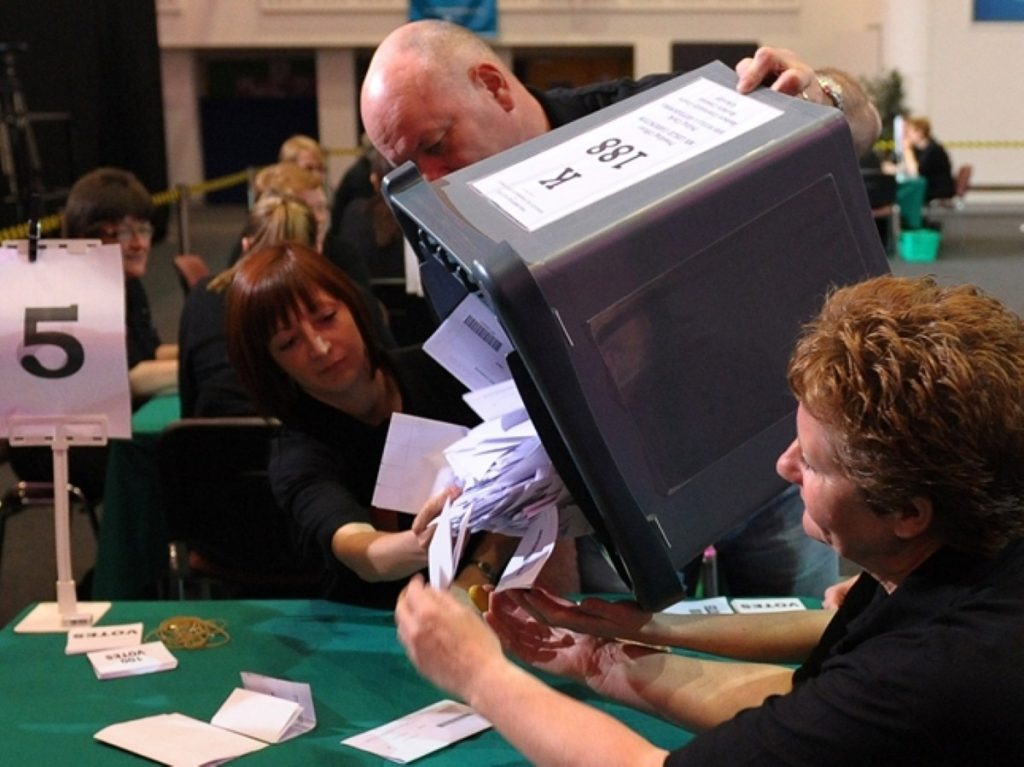Wasted: The 15.7m votes which didn’t count
Electoral reform campaigners have demanded change after politics.co.uk research showed over half of voters in last week’s general election did not get their preferred MP.
Of the nearly 30 million votes cast on May 6th, nearly 14 million backed the candidate who was eventually chosen as that constituency’s MP. But 15.7 million, or 53% of all those cast, chose a candidate other than that eventually elected.
Under the present system their votes are not reflected in parliament.


“If anything, these figures underestimated the number of votes that did not elect anyone in this election because they don’t take into account the number of excess votes cast in safe seats,” deputy director of Unlock Democracy Alexandra Runswick said.
“For a long time our voting system has lead to parliaments that do not represent the votes cast; now it seems it cannot even deliver us decisive majorities.
“People who believe this is a quirk that happens once in a generation should look to Canada which has returned three consecutive balanced parliaments in six years.
“As the electorate embraces multi-party politics, so the likelihood of a balanced parliament increases.”
An analysis of the votes which did not contribute towards electing an MP confirms the Liberal Democrats’ belief they would stand to benefit most from electoral reform.
Of the ‘loser’ votes, 36% backed failed Lib Dems. Twenty-three per cent supported unsuccessful Labour candidates and 22% voted for unelected Tory candidates.
Of the minor parties, the far-right British National party were the most unrepresented. With no MPs elected they took 565,376 votes nationally. The Scottish National party, who had six MPs, had over 400,000 unsuccessful votes while the Green party – with one MP – attracted nearly 270,000 failed votes.
Only 114 seats, 18% of the total make-up of the Commons, changed parties in the 2010 election. One-third of all MPs held their seats by taking over 50% of the votes cast.
Unlock Democracy’s protest on Saturday succeeded in attracting support from Lib Dem leader Nick Clegg and the group is hoping its efforts will help strengthen the party’s resolve in calling for a referendum on electoral reform as coalition negotiations continue.
“The enormous groundswell of support for the Take Back Parliament campaign, still only a few days old, suggests that the public are not prepared to accept this nonsense lying down any more,” Ms Runswich added.
“Regardless of what the parties agree in their negotiations over the next few days, this issue is not going away.”
Many of the closer races saw elected MPs receive fewer votes than some failed candidates.
Liberal Democrat Simon Wright, who ousted former home secretary Charles Clarke in Norwich South, has the honour of being the MP in the Commons with the lowest share of the vote.
Three hundred and one unsuccessful candidates won more votes than him.
The highest number of votes for a loser was 26,976, achieved by Conservative challenger Annunziata Rees-Mogg in Somerton and Frome. Lib Dem incumbent David Heath won 28,793 votes.
The lowest number of votes for a victor was just 6,723. Angus MacNeil held the Western Isles seat for the Scottish National party. Nearly 1,000 unsuccessful candidates won more votes than him.












